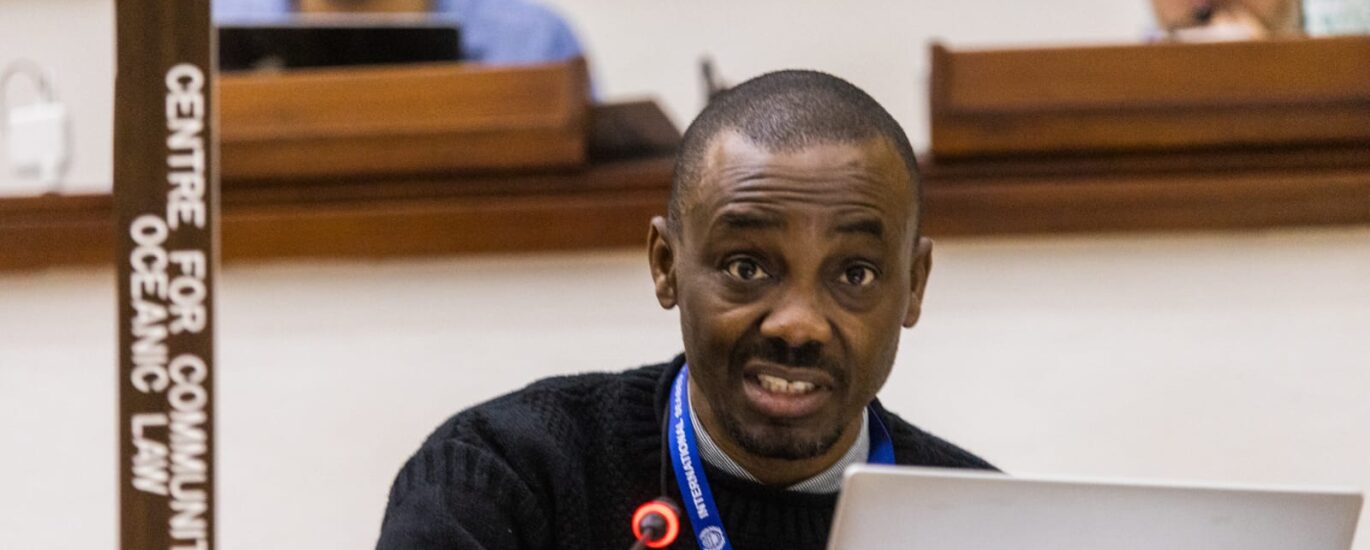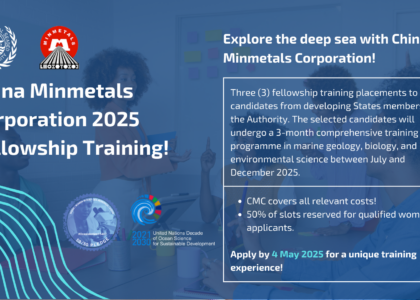The Centre for Community and Oceanic Law (CCOL) was honoured to participate in the recently concluded Part 1 of the thirtieth session of the International Seabed Authority (ISA) Council meeting in Jamaica. This gathering brought together state representatives, policymakers, legal experts, environmental advocates, and other key stakeholders to discuss the sustainable management of deep-sea resources and the governance of activities in the international seabed area, focusing particularly, on the consideration of the Draft Regulations on Exploitation of Mineral Resources in the Area.
As an NGO dedicated to promoting equitable and responsible ocean governance through education and awareness, CCOL’s presence at the ISA Council meeting underscored our commitment to the promotion of ocean literacy in the ECOWAS region as well as highlights CCOL’s commitment to ocean exploration and resource extraction that align with environmental protection and the interests of the coastal communities of the region.
CCOL’s engagement in this high-level forum provided an opportunity to contribute to critical discussions on marine biodiversity conservation, deep-sea mining regulations, and the rights of small island developing states (SIDS) and coastal communities likely to be affected by seabed activities.
Throughout the meeting, CCOL actively engaged with delegates during the consideration of the Draft Regulations on Exploitation of Mineral Resources in the Area and participated in several side events.
The ISA Council meeting serves as a crucial platform for shaping the future of ocean governance, and CCOL remains committed to advancing ocean literacy in our region through education and enlightenment. As we move forward, we will continue to engage with international bodies, coastal communities, and other stakeholders to ensure a sustainable and just approach to ocean resource management in the ECOWAS region.
We hope that member States and other stakeholders, in the light of recent developments involving the Metal Company and the United States of America, will unite in a spirit of compromise to achieve the necessary consensus for adopting the Regulations within the projected timeframe. The time for complacency is over.
Needless to say that the company’s shift in strategy, including its appeal to United States regulatory frameworks, highlights the challenges in achieving global consensus on the seabed mining Regulations. This situation indeed calls for decisive action and compromise to ensure that the Regulations are adopted without avoidable delays.
We appreciate the African Group’s collective approach and strongly support their unity of purpose. Their collaborative efforts in sharing experiences and speaking with one voice in an international forum as the ISA Council foster essential consensus among African States. This is truly commendable and should be sustained.
The ISA was established in 1994 with the specific and exclusive mandate to manage the Area and its resources for the shared benefit of humankind, which includes ensuring the effective protection of the marine environment in the Area, a specific and exclusive competence. Its competence is recognised and reinforced by other international agreements, under the United Nations Convention on the Law of the Sea (UNCLOS), including the Agreement on Marine Biodiversity of Areas beyond National Jurisdiction (BBNJ Agreement).
We congratulate the 30th Council President, Duncan Muhumuza Laki of Uganda, and Madam Secretary General, Ms Leticia Carvalho, for a productive Part I of the thirtieth Session as we look forward an even more productive Part II of the thirtieth session in July 2025.
We are grateful to all our partners and supporters who share our vision for a fair and sustainable oceanic legal framework.
Stay connected with CCOL for updates on our ongoing work and future engagements in global ocean governance forums.
©Centre for Community and Oceanic Law







